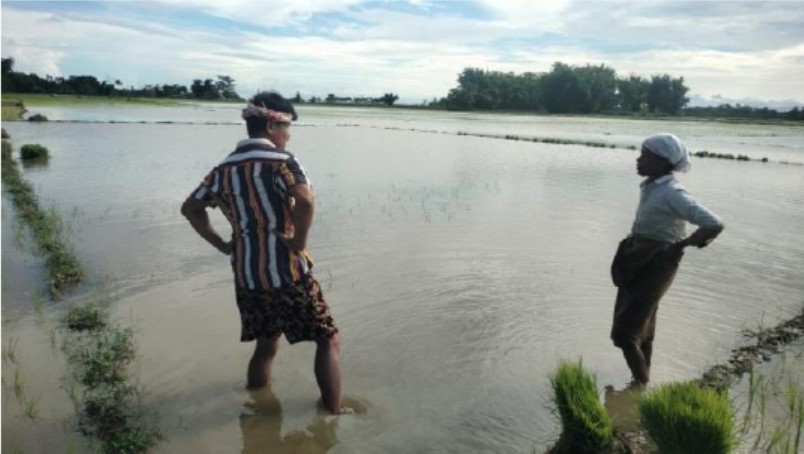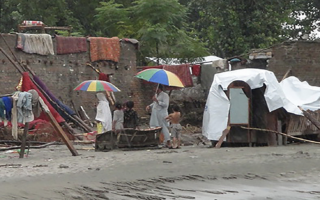
We are conducting research through this project to understand and address the intricate linkages between climate change, migration, and just energy transitions in India.
Why it Matters:
Migrants often encounter significant socioeconomic barriers, including limited access to resources, inadequate policy frameworks, and unequal opportunities, which exacerbate their vulnerabilities. Just Energy Transition refers to a fair and inclusive shift from fossil fuels to clean energy that protects workers, communities, and vulnerable groups. The lack of integration of policies with migration strategies can lead to uneven regional development and deepen existing inequalities.
Our Approach:
The project, running from 2023 to 2026, is structured around three interrelated work packages, running in parallel, to address the complex challenges of climate-induced migration and just energy transitions in India.
By synthesizing high-resolution data and reviewing policy interventions, we aim to generate actionable insights for localized programs and inform strategies for equitable and sustainable development in the context of climate-induced migration.
What We Are Doing:
Work Package 1 (WP1):
We’ll be establishing a diverse Technical Advisory Committee (TAC) comprising experts from various fields to guide scoping exercises, needs assessments, research activities, and conduct trainings. The TAC will produce evidence-based recommendations for policy and programming.
Work Package 2 (WP2):
We’ll be harnessing macro-level data using big data, advanced machine learning techniques, and high-resolution datasets to identify and analyze spatial and statistical overlaps between climate stressors and migration patterns. We’ll also include Ration Card transaction data to look over indicative patterns of migration. Outputs include statistics, maps, interactive visualizations, and future migration projections using the Community Demographic Model (CDM).
Work Package 3 (WP3):
We’ll be conducting strategic, micro-level case studies across climate hotspots in India to understand migration drivers, local dynamics, and outcomes. This includes exploring migration in specific corridors, analyzing gendered impacts, and integrating with just energy transition themes.
The Big Picture:
India faces a growing challenge as climate-induced migration increasingly impacts vulnerable communities, particularly in regions experiencing frequent climatic stressors such as floods, droughts, and extreme heat.
We will develop a comprehensive, forward-looking, and impactful research agenda along with a substantial body of evidence on just energy transition and climate-induced migration. By leveraging big data, advanced analytics, and strategic case studies, we seek to identify migration hotspots and inform equitable, data-driven policies.
Partners:
Funders:
- MacArthur Foundation
Key People:
- Deepshikha Sharma (Lead)
- Ricardo Regules
- Niranjan Saggurti
- Arabinda Mishra
- Rene Nevarez
- Ashita Munjral
- Rimjhim Bajpai
- Anchal Purbey
- Paritosh Swarnkar




